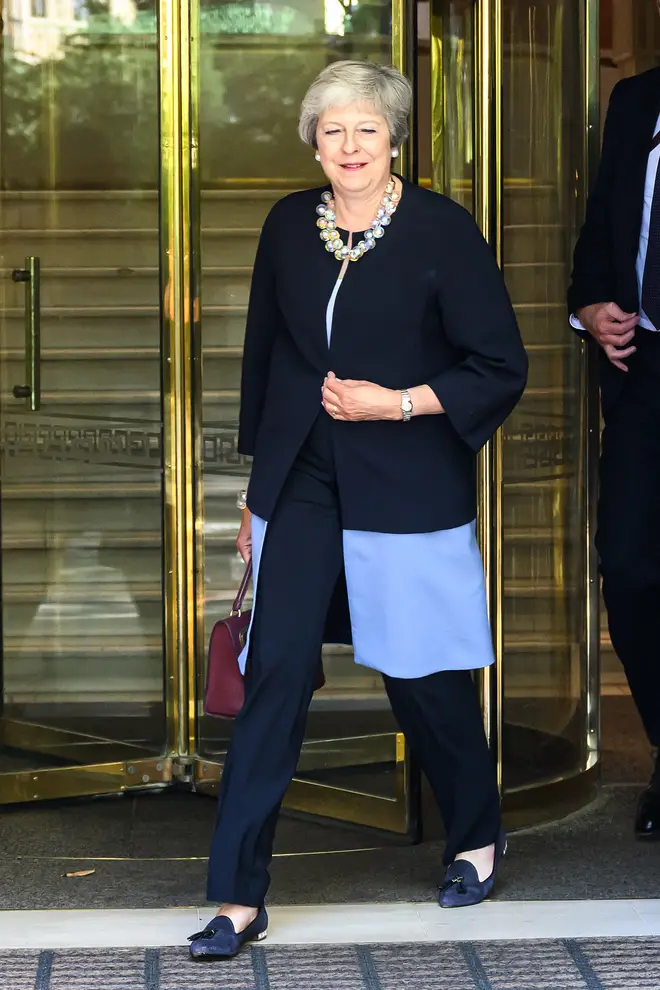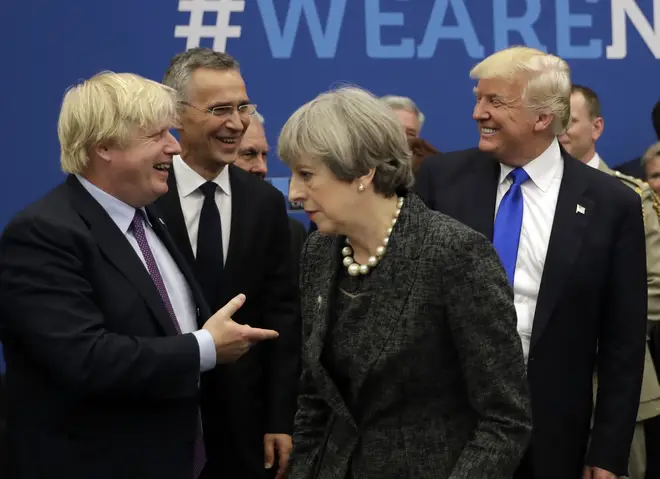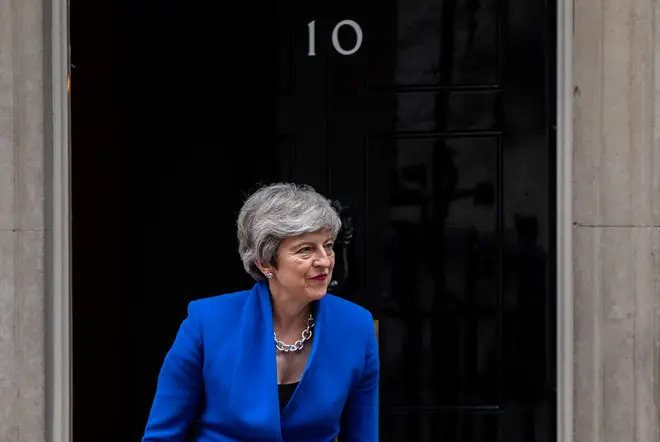
Richard Spurr 1am - 4am
13 September 2023, 06:00

Theresa May on Suella Braverman's language
Theresa May has criticised Suella Braverman for comparing migrants arriving in the UK to an "invasion".
The Conservative former Prime Minister said that the Home Secretary's remarks were "not the language that I would use."
She told LBC's Andrew Marr: "I have made one or two points about some of the migration policies that have been brought up by the government.
"I'm particularly concerned about their most recent legislation and its impact on the victims of slavery, for example."
Braverman came under fire last year for likening the migrants' arrival on small boats to an "invasion on our southern coast".
May, who was Prime Minister from 2016-2019 and previously Home Secretary for six years, has long been criticised for using the term "hostile environment" for irregular migrants in the UK during her tenure. She has since said she regretted the term.
Listen to the full interview on Tonight with Andrew Marr this evening at 6pm on Global Player
May said "hostile environment" was used to "describe the environment we wanted to set for those who were here illegally."
She added: "It's only fair to people who come here legally, that people who are here illegally are not able to, if you like, carry on living a life as if they've come here legally.
"And so it was aimed at a particular group of people. What of course happened was it came by some to be interpreted as more generally applying to to people who had come in to live in the country. And that was a mistake, because that was never what was intended."
More than 100,000 migrants have come in small boats across the English Channel since 2018, including over 45,000 last year and more than 23,000 so far in 2023.

May called for a clearer differentiation between refugees and economic migrants.
"The British people have always been welcoming to people who are refugees who are fleeing persecution," she said.
"Obviously, what we see from a lot of people coming, migrating to the country illegally is they're economic migrants.
"They're not fleeing persecution in the sense that one would normally recognise a refugee."
May added: "I said, when I was Prime Minister, at the United Nations, I think we need internationally to have a better way, if you like, of differentiating between those who are refugees, and those who are economic migrants.

"And we need to have a look, again, at some of the rules that we all operate on internationally."
May said that we should be "talking to our European allies" about making sure migrants claim asylum in the first safe country they arrive in.
"Most of the people who arrive, obviously, particularly those coming in small boats have been through other European countries," she said.
"And obviously, a number of my colleagues will say, and this is this is right, that somebody who is genuinely fleeing persecution, would be claiming asylum in the first safe country that they that they get to.
"But we do need to be talking to our European allies about this issue, which potentially will be exacerbated by climate change.
"We know significant numbers are spoken of in future migration. And climate change could exacerbate that problem."
For many, the defining issue of May's premiership was the laborious effort to pass a Brexit deal through Parliament.
She eventually resigned in July 2019 after various versions of a withdrawal agreement were rejected by MPs three times.
Speaking to Andrew, May pointed to competing factions of hard Brexiters and Remainers within Parliament as the reason for the failure of her agreement.

She said: "Unfortunately, the deal I presented to Parliament was not accepted and what happened over time was... the hardline Brexiteers wanted something hard, much harder, and the hardline Remainers saw an opportunity, perhaps to try for a second referendum".
Her successor Boris Johnson did secure a deal and won a massive landslide in December 2019.
But May said his version, which included a sea border down the Irish sea between Northern Ireland and the rest of the UK, was "a bad deal".
She said: "I had always said that the deal that he accepted with that border down the Irish Sea, could not be accepted by in my view by any UK Prime Minister, because of the separation between Great Britain and Northern Ireland that it created.
"But he accepted what the EU had actually proposed in the first place, and then claimed it was a great victory. And on the back of that, of course, he was able to say he'd done Brexit.
"And he, on the back of aiming to get Brexit, he was able to get the very good election results."
The Abuse of Power: Confronting Injustice in Public Life, by Theresa May from Headline Publishing, is released on Thursday September 14.